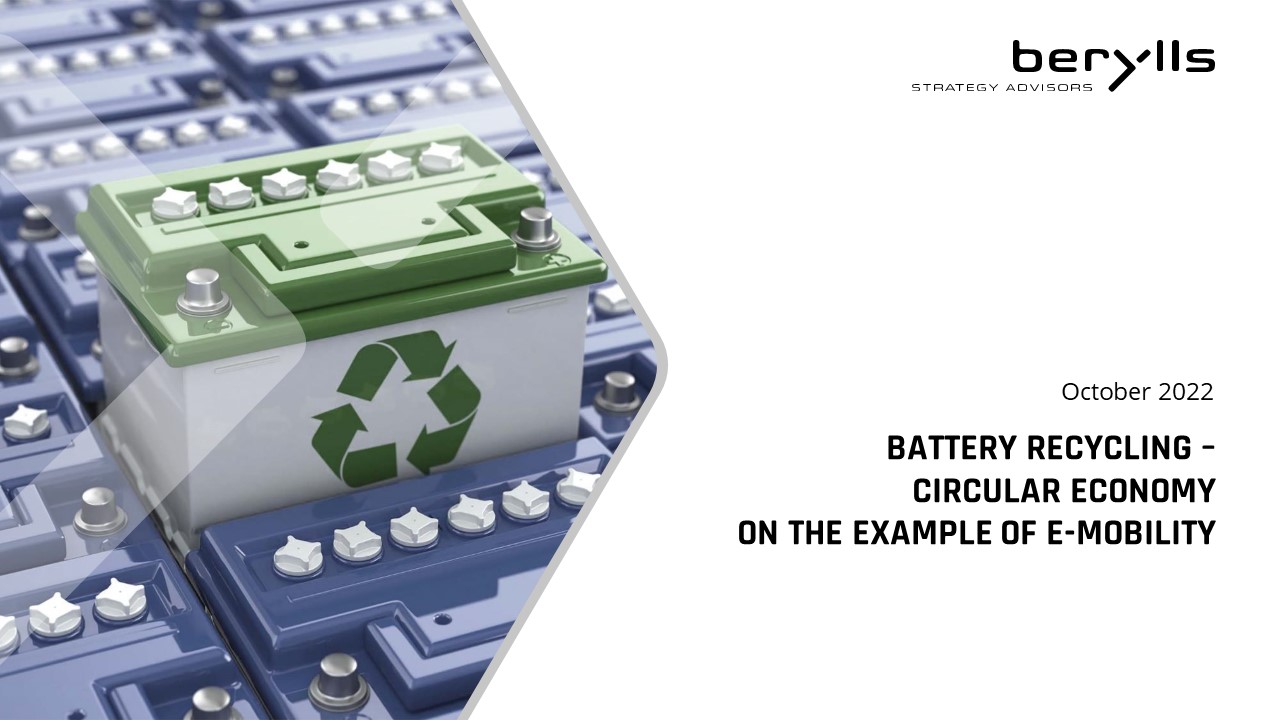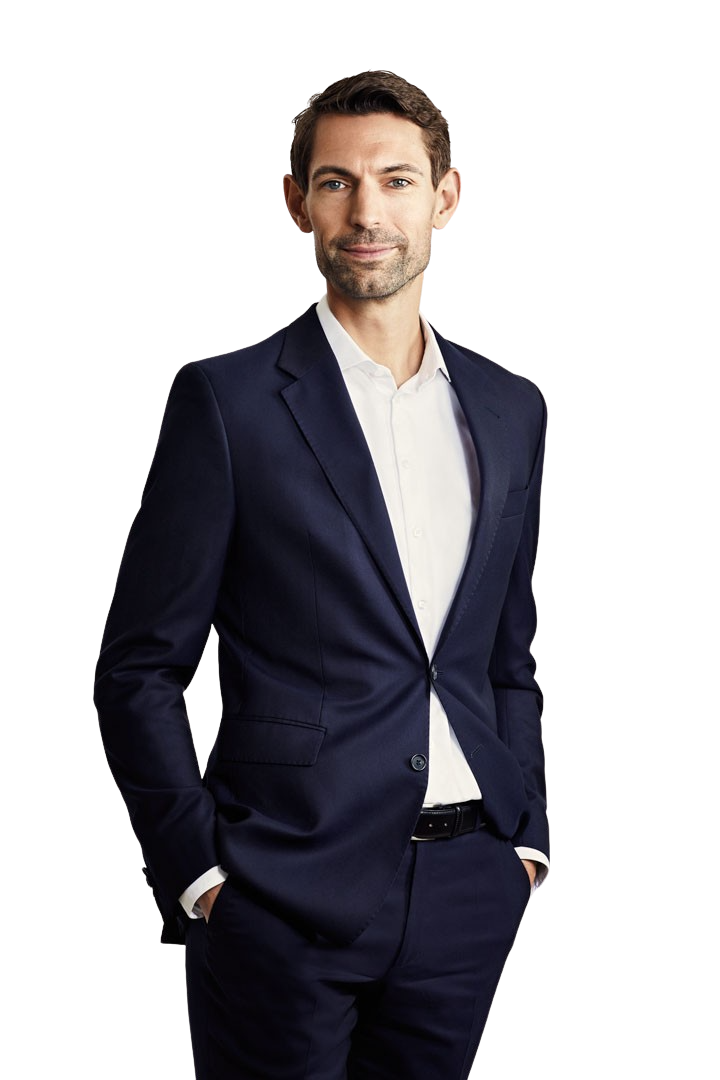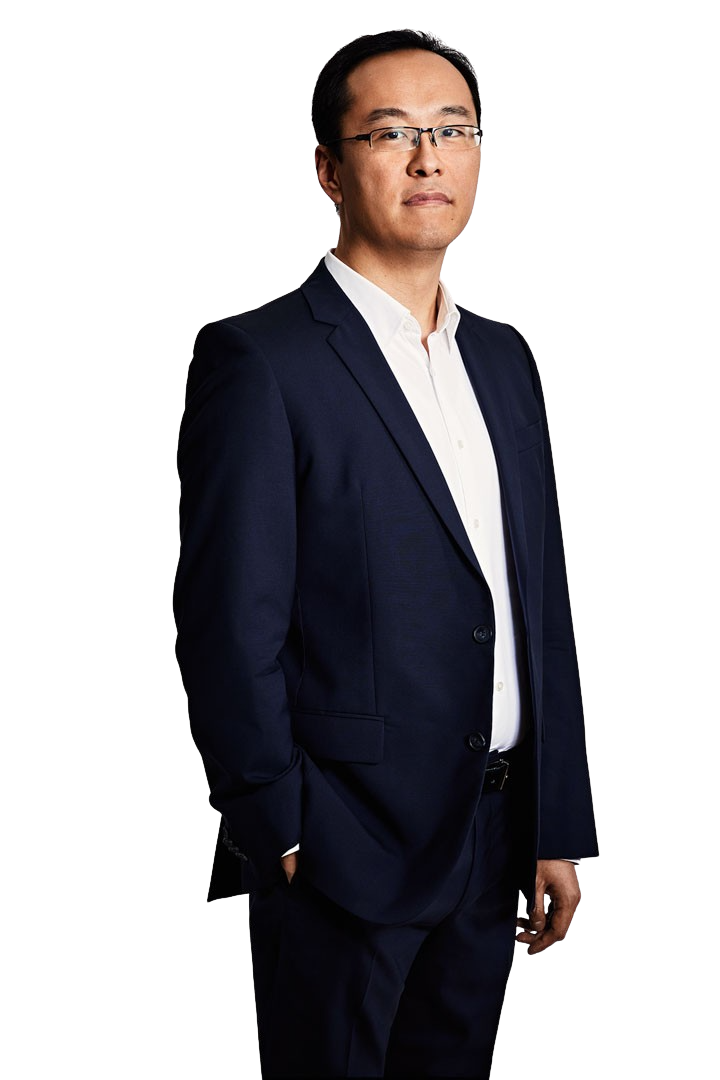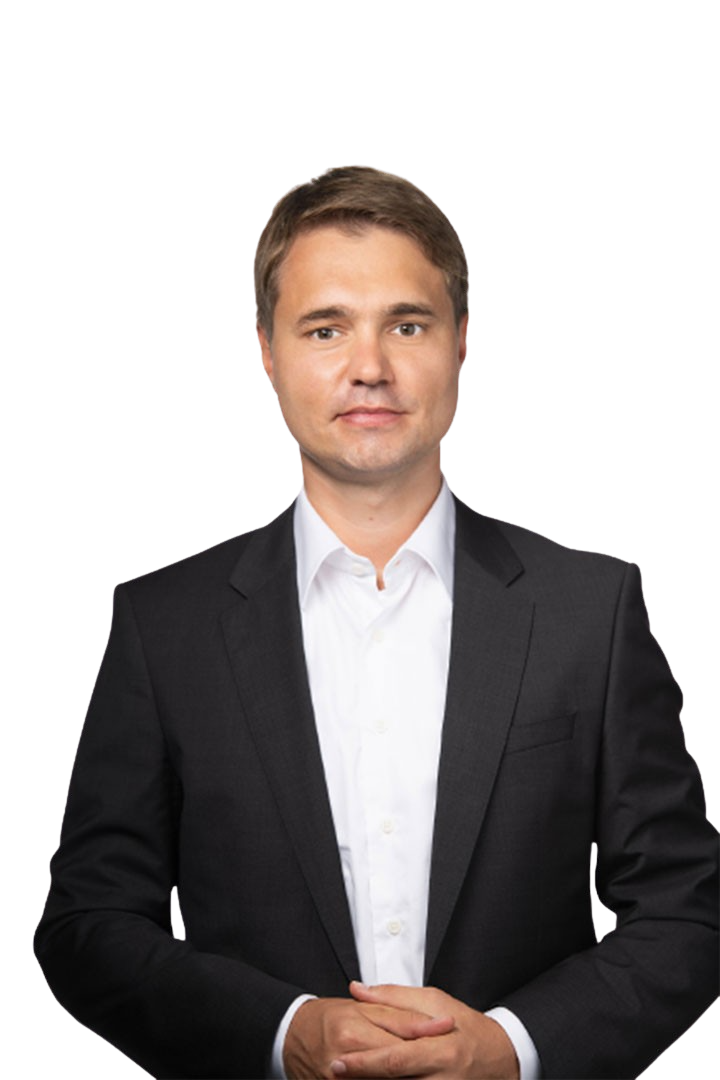The mobility of the future will be electric – and the transition from conventional internal combustion engines (ICE) to battery-electric powertrains is progressing faster than expected. In 2020, battery-electric vehicles were forecast to account for 10% of global production volumes in 2025. Only two years later, this number has soared to 18%. Most vehicle manufacturers have once again tightened their exit strategies for the ICE. Individual OEMs are planning the complete electrification of their product portfolio as soon as 2025.
In light of increasing electrification, there remain numerous questions about the vehicle lifecycle, in particular the re-use of high-voltage batteries:
To answer these and other questions, we have developed the Berylls Re-X model (Re-cycling, Re-manufacture, Re-use), which forecasts the recycling requirements, investment requirements, and material cost development for 19 different cell chemistries globally until 2040.
In our view, battery recycling will gain enormous importance by the end of the next decade. Therefore, successful bottleneck management of material supply, building regional capacities, and the introduction of technical standards are the key factors, as our key findings show:

Dr. Alexander Timmer (1981) joined the Berylls Group, an international strategy consultancy specializing in the automotive industry, as a partner in May 2021. He is an expert in innovation and market entry strategies and can look back on many years of experience in the operations environment.
Dr. Alexander Timmer has been advising automotive manufacturers and suppliers in a global context since 2012. He has in-depth expert knowledge in the areas of portfolio planning, development and production. His other areas of expertise include digitalization and the complex of topics surrounding electromobility.
Prior to joining Berylls Strategy Advisors, he worked for Booz & Company and PwC Strategy&, among others, as a member of the management team in North America, Asia and Europe.
After studying mechanical engineering at RWTH Aachen University and Chalmers University in Gothenburg, he earned his doctorate in manufacturing technologies at the Machine Tool Laboratory of RWTH Aachen University.

Willy Lu Wang (1981) joined Berylls Strategy Advisors in 2017. He started his career participating in the graduate program of Audi focusing on production planning. After stations at another strategy consultancy as well as being the strategy director for a German Tier-1 supplier, he is now responsible for the China business at Berylls.
He has a broad consulting focus working for all clients in China, whether they are JVs, WOFEs or pure local players. He is also responsible for the development of AI and Big Data products dedicated towards the Chinese market further strengthening the Berylls End-to-End strategy and product development capabilities.
Wang studied Electronics & Information Technology with focus on Systems and Software Engineering and Control Theory at Karlsruhe Institute of Technology.

Peter Trögel (1986) is principal at the Berylls Group, an international strategy consultancy specializing in the automotive industry. He has been advising automotive manufacturers and suppliers in a global context since 2012. Peter Trögel is an expert in operations and can look back on many years of experience in the transformation environment. His areas of expertise include development, industrialization, and production.
Prior to joining Berylls, Peter Trögel worked for Booz & Company and PwC Strategy&, among others, as a member of the management team in North America, Asia and Europe. He holds a diploma degree in industrial engineering from the Karlsruhe Institute of Technology (KIT) and the University of Technology Sydney (UTS).
